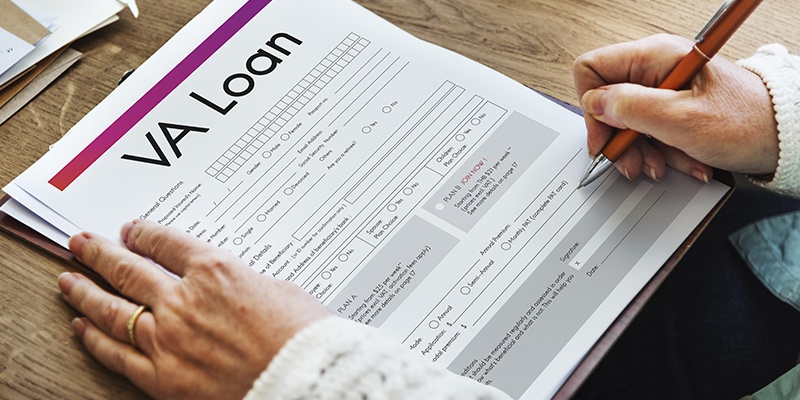The U.S. Department of Veterans Affairs (VA) designed a mortgage loan specifically for veterans, active-duty service members and reservists to make it easier for them to buy a home. While some borrowers may be familiar with this loan, they may not know certain details.
VA home loans don’t have a limit, are only available through lenders, must be used for primary residences and eligible to surviving spouses, and require a Certificate of Eligibility.
Let’s take a closer look:
1. There isn’t a cap on the amount someone could borrow.
Unlike many other mortgage loans, VA loans don’t have a set cap on how much money a borrower could receive, according to the VA. This essentially means there isn’t a limit. However, the VA itself does, with it only assuming liability on a certain amount.
"The loan limits are the amount a qualified Veteran with full entitlement may be able to borrow without making a down payment."
Specifically, “there are limits on the amount of liability VA can assume, which usually affects the amount of money an institution will lend you," states the department. “The loan limits are the amount a qualified Veteran with full entitlement may be able to borrow without making a down payment. These loan limits vary by county, since the value of a house depends in part on its location.”
These limits also tend to change from year to year, and can be viewed on the VA’s official website.
2. VA loans cannot be used to purchase vacation homes.
One of the stipulations of a VA home loan is that the property being purchased must be used as the borrower’s primary residence. This means any vacation homes, as well as properties buyers are interested in purchasing for investment purposes, do not qualify. However, buyers aren’t limited to only single-family homes. Multi-family homes, some condominiums, and manufactured homes, are also eligible—they just need to be approved by the VA beforehand.
3. Some surviving spouses are eligible.
As aforementioned, VA home loans were developed to help veterans, active-duty service members and reservists afford a home. Still, there are some exceptions in which surviving spouses may be eligible, as well. Several conditions in which this could take place, as described by the VA, include:
A surviving spouse of a veteran who was killed in action or by a combat-related disability may qualify, for example, as long as he or she is not remarried. A spouse of an active-duty service member “missing in action or a prisoner of war” could obtain this type of loan, too.
Additionally, any surviving spouses who remarry on or after age 57, and on or after December 16, 2003, or who are married to a “certain totally disabled” veteran “whose disability may not have been the cause of death,” are also considered an eligible candidate.
4. The VA doesn’t provide borrowers with the loan.
The VA created the loan and guarantees it, but the agency doesn’t actually provide qualified borrowers with a VA loan. Applicants would need to be approved by a trusted mortgage lender and obtain the funds that way, instead. As a result, it’s important for home buyers to know what exactly to look for in a good mortgage loan originator. This will make the search for the right lender easier.
5. Borrowers must receive a Certificate of Eligibility.
Although borrowers have to apply for a VA home loan via a lender, they must receive a Certificate of Eligibility (COE) by the VA to be approved, which they can do online, via mail, or through their lender. A COE simply proves that they are suitable candidates and meet the loan’s qualifications. Since different types of buyers could be eligible, the VA breaks down what each one would need to obtain a COE:
For instance, any veterans applying need a DD Form 214, and are “required to have a copy showing the character of service (item 24) and the narrative reason for separation (item 28).”
Contour Mortgage provides home buyers the funds they need to purchase a home. We offer many types of financing options, including VA loans. Contact us today to learn more about our services and VA loan requirements.

















